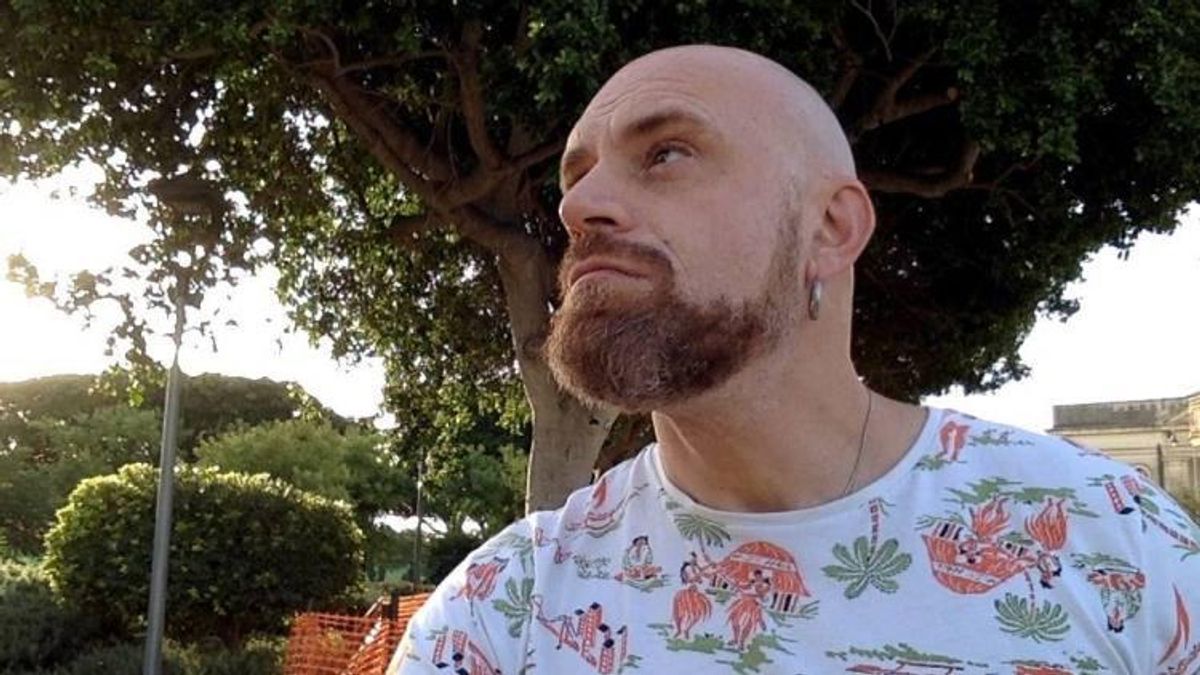Francesco Lepore, a former Roman Catholic priest who worked as a Latin translator in the Vatican's office of the Secretariat of State, has become something of a beacon for the LGBTQ+ community in Italy. Like any beacon, Lepore is now seen, no longer invisible, and with his visibility and first book comes a win for the global LGBTQ+ community. Lepore's book is titled Il Delitto di Giarre. 1980: Un "Caso Iinsoluto" e le Battaglie del Movimento LGBT+ in Italia (which translates into English as The Crime of Giarre. 1980: An "Unsolved Case" and the Battles of the LGBT+ Movement in Italy), published this year by Rizzoli.
In his book, Lepore investigates the birth of the Italian gay rights movement, which began like an episode of the American TV series The Sopranos, with the death of a Sicilian couple. On October 31, 1980, the bodies of 25-year old Giorgio Agatino Giammona and 15-year old Antonio "Toni" Galatola were found under a huge pine tree in Giarre, Sicily. The two had disappeared 14 days earlier. Immediately, rumors began to spread of a double suicide or murder-suicide. For everyone in the town, the victims were "the boyfriends," and Giorgio had long been accused of being a "certified f****t"; in short, he was accused of having led an innocent young man astray.
"What makes that relationship unacceptable is, in reality, only their sexual orientation: in that same Italian society, it was absolutely normal that Toni's sister left home at the age of twelve, and at fifteen became a mother," Lepore writes. In the meantime, while the relatives of the victims hurriedly denied their homosexuality, the investigations came up against a wall of silence, and many key points were left to be clarified. How was it possible that the bodies were found in a busy area, a few hundred meters from the Carabinieri barracks? And how could the position of the bodies and the trajectory of the bullets be reconciled with the hypothesis of a murder-suicide? Lepore reminds me that "a few days later, thirteen-year-old Francesco Messina, Toni's nephew, confessed: the two had begged him to kill them, and had even gone so far as to threaten him with death if he did not help them." Then, Lepore adds, "the boy recanted, claiming that he confessed under pressure from the police. What is certain is that Giorgio and Toni died of a whole community's prejudice against them."
The story shocked Italians, leading to discussion of recognizing that antigay discrimination existed. On December 9, 1980, a little more than a month after the discovery of the bodies, the first nucleus of Arcigay, the most important Italian LGBT+ association, was founded in Palermo by a former priest, Marco Bisceglia.
Through careful reconstruction, Lepore, especially thanks to the testimony of the relatives of the victims and of one of the magistrates of the time, is able to identify the murderers of Giorgio and Toni and to clarify that it was a crime, nurtured within the family, "to wash in blood the shame of homosexuality." Lepore's book grew out of an article he wrote last year on Linkiesta.it, where he writes about the Vatican, civil rights, and culture, along with a daily column in Latin, which led The New York Times to recently dub the publication "proudly elitist."
Dedicated to his partner, Michele Nicolosi, the book also recounts four decades of the Italian LGBT+ movement, thanks to the testimonies of historical activists such as Pina Bonanno, Franco Grillini, Franco Lo Vecchio, Porpora Marcasciano, Angelo Pezzana, and Enzo Scimonelli, and to the evaluations of important men, both from a cultural and activist point of view, including Giuseppe Di Salvo, a teacher and founder of Fuori! of Palermo; Yuri Guaiana, a senior campaign manager for All Out and member of the board of ILGA World; and Paolo Patane, national president of Arcigay from 2010 to 2012 and prominent figure in Sicilian culture.
Lepore, who is featured in the first chapter of another book, Frederic Martel's New York Times best-seller In the Closet of the Vatican: Power, Homosexuality and Hypocrisy (2019, Bloomsbury Continuum), is not as naive as the French Cardinal Jean-Louis Tauran once claimed. Today, he is free from the church that never considered him a full member, and because of that, Lepore has thrust himself into journalism. Unlike many gay rights activists, Lepore is a Latin scholar, but more important, he is that beacon for Italy's gay rights movement to claim a historical starting point. (Thanks be to God.)
Benjamin Brenkert is the author ofA Catechism of the Heart: A Jesuit Missioned to the Laity.













































































Fans thirsting over Chris Colfer's sexy new muscles for Coachella